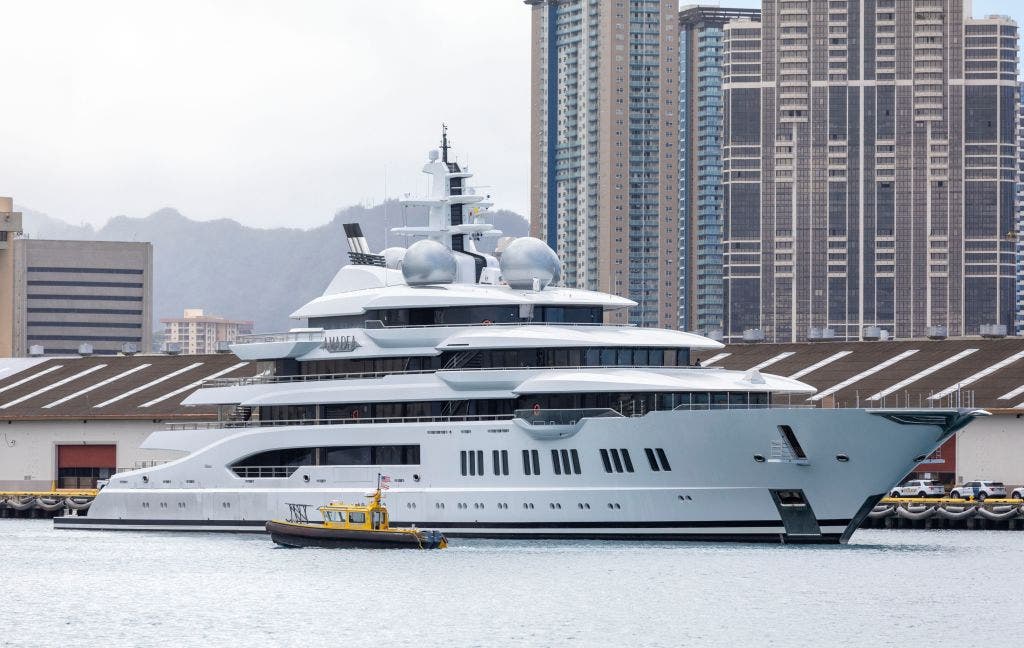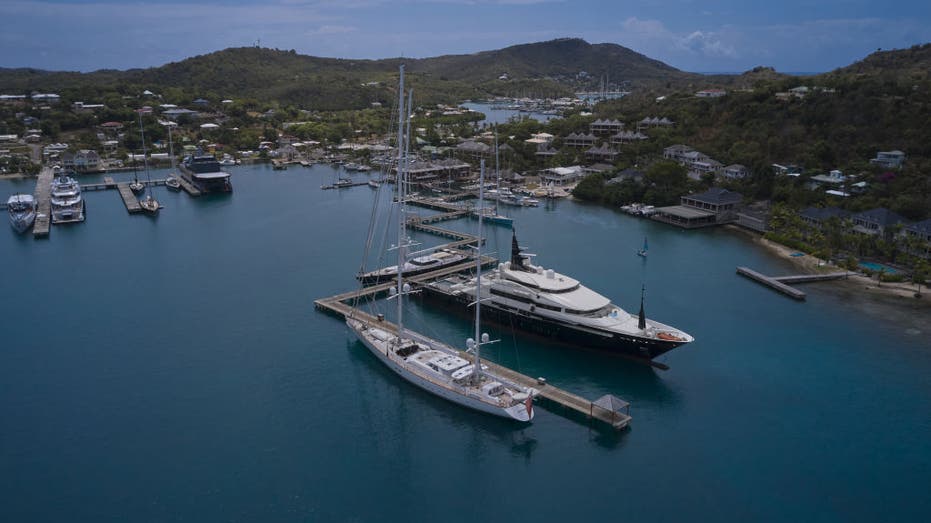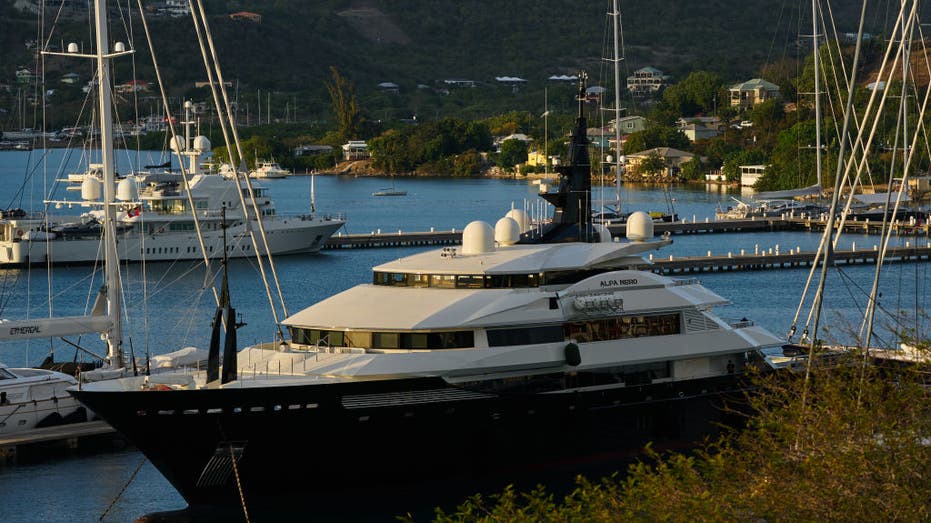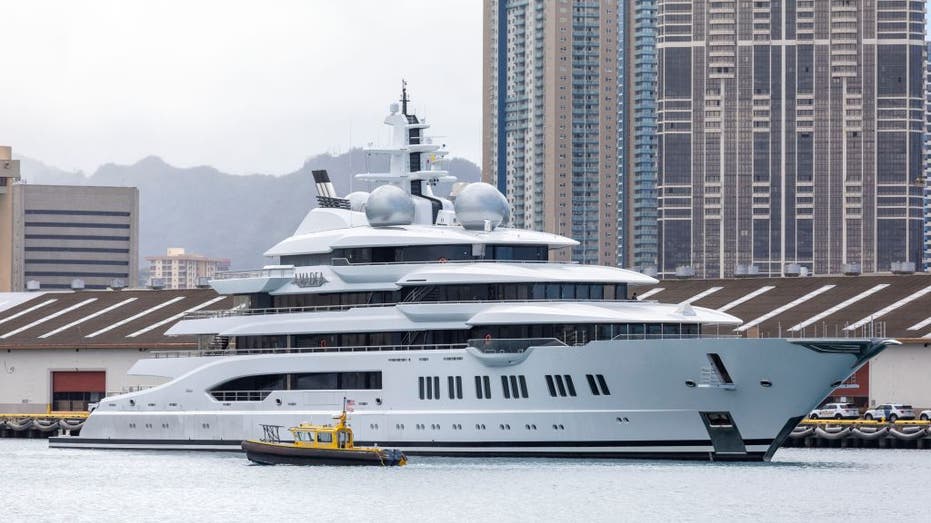
FOX News contributor and former CIA station chief Daniel Hoffman joined ‘Cavuto: Coast to Coast’ to discuss the national security implications of Kim Jong Un and Putin’s recent meeting.
Taxpayers are paying dearly to maintain assets seized from Russian oligarchs across the globe as the U.S. and other countries struggle to sell them off, the Wall Street Journal reported Monday.
Taxpayers in the country of Antigua and Barbuda are paying $28,000 a week to keep mold out of the Alfa Nero, a $120 million yacht seized from Russian billionaire Andrey Grigoryevich Guryev. Western sanctions have successfully removed assets from many Russian oligarchs, but laws have made it difficult for governments to sell off those seized assets.
To date, Ukraine has received just $5.4 million in funds acquired from the sale of oligarchs’ billionaire toys.
“You take thousand dollar bills, tear them up, and just keep going,” Tom Paterson, the dock master at the marina holding the Alfa Nero told WSJ.

The superyacht Alfa Nero docked in Falmouth Harbour in Saint Paul Parish, Antigua. It’s been more than a year since the Russian superyacht Alfa Nero all 267 feet and 2,500 gross tons of it was abandoned in Falmouth Harbour, Antigua. (Getty Images)
The U.S. Justice Department has a team of 50 devoted to leveling criminal cases against the owners of seized Russian assets. If those cases are successful, only then can those assets be sold.
Meanwhile, the United Nation, U.K., and European Union are undergoing similar efforts.
THOUSANDS OF VENEZUELAN MIGRANTS GATHER UNDER TEXAS BRIDGE AS BORDER NUMBERS SKYROCKET
“The costs for Ukraine are huge, and morally I think it is a no-brainer that the party that inflicts that cost and a horrible war should pay,” Anders Ahnlid, who heads the EU’s Russian assets team, told WSJ. “But that has to be done under the law.”

Taxpayers are paying dearly to maintain assets seized from Russian oligarchs across the globe as the U.S. and other countries struggle to sell them off, the Wall Street Journal reported Monday. (Getty Images)
Antigua had previously tried to sell the Alfa Nero to ex-Google executive Eric Schmidt, but a Russia-linked company contested the sale at the last minute and Schmidt dropped the deal. The sale would have gone through for just $67 million, a fraction of its initial cost.
HILLARY CLINTON APPROVED DISSEMINATION OF TRUMP-RUSSIAN BANK ALLEGATIONS TO MEDIA, CAMPAIGN MANAGER TESTIFIES
The U.S. has seized two Russian yachts since the outset of the Ukraine invasion, sailing the $300 million Amadea from Fiji to San Diego and also taking control of the Tango, a $90 million yacht. Neither of them have been sold.

The U.S. has seized two Russian yachts since the outset of the Ukraine invasion, including the $300 million Amadea. (Getty Images)
CLICK HERE TO GET THE FOX NEWS APP
“We still have to be able to meet our burden of proof in court,” Michael Khoo, a DOJ official working to enforce Russian sanctions, told WSJ, adding that his efforts are “sometimes in jurisdictions that are not necessarily friendly to the U.S. And so it becomes a challenge to work across those borders.”

 Latest Breaking News Online News Portal
Latest Breaking News Online News Portal




